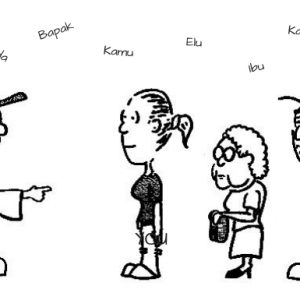Last updated on January 25, 2024
What is a Polyglot?
A polyglot is someone who speaks a lot of languages. Some polyglots are linguists, and some linguists are polyglots. But I’m the kind of linguist who is not a polyglot. Language learning is not particularly easy or fun for me. It’s more of an occupational hazard than an end in itself.
What is a Linguist?
But if I don’t love learning languages, then how can I be a linguist? A linguist, in this sense, is someone who treats languages as a focus of research, like biologists study life forms and mathematicians study numbers.
Language is everywhere, so there are a lot of ways to study it. Some linguists study the connections between the way we speak and our relationships in society. Some linguists research the best techniques for learning a foreign language. Some linguists work with computers to develop programs that can understand natural languages.
I’m the type of linguist that studies indigenous languages. These are mostly languages you have probably never heard of with maybe 100,000 speakers or less. I want to understand what sounds they use, how they build words, and the ways that they put words together to make sentences. In other words, I study their grammar, and describe the patterns they use to communicate in their own unique way.
Languages ofIndonesia
Indonesia has about 700 indigenous languages. In order to work with the communities that speak these languages, I need to know how to speak Indonesian. Should be easy, right? After all, I am a linguist, and it is often said that Indonesian is an “easy” language.
Unless you’re still a child, learning a new language is never easy. And the older you get, the harder it is. Being a linguist does help some. It helps me understand how the system works. But it doesn’t help me memorize new vocabulary any faster!
A Linguist’s Perspective
The real difference for a linguist is perspective. Because of my background, I think about language in different ways than the average language student. In the next six blog entries, I’ll share briefly some of the linguistic patterns I’ve noticed and the comparisons between languages that have come to my mind while studying Indonesian.
Each of the concepts I bring up in these posts are simplified, just to give you a taste of linguistics. But there are plenty of links to places where you can learn more! I hope you enjoy reading these thoughts, and that they might give you a new perspective on language.
- Formal Indonesian or “street” language? (Dialectology)
- Mixing languages (Language contact)
- Indonesian spelling and pronunciation (Orthography)
Thanks to Mary Dalrymple and Wiem Burung for their helpful comments on these blogs!
About the author: As a linguist, Joseph Lovestrand is mostly interested in studying indigenous languages, and seeing what they have to tell us about how we communicate, think and live. His research began in Africa. He lived for a year in Chad, studying the Barayin language in order to help them establish their first ever literacy program. He also spent four years working in Cameroon where he managed projects supporting indigenous language communities and did field research on the Nyokon language. His most recent linguistic work has been in Indonesia, where he has consulted on a literacy program for the Kodi language in Sumba. Read more at: www.josephlovestrand.com

